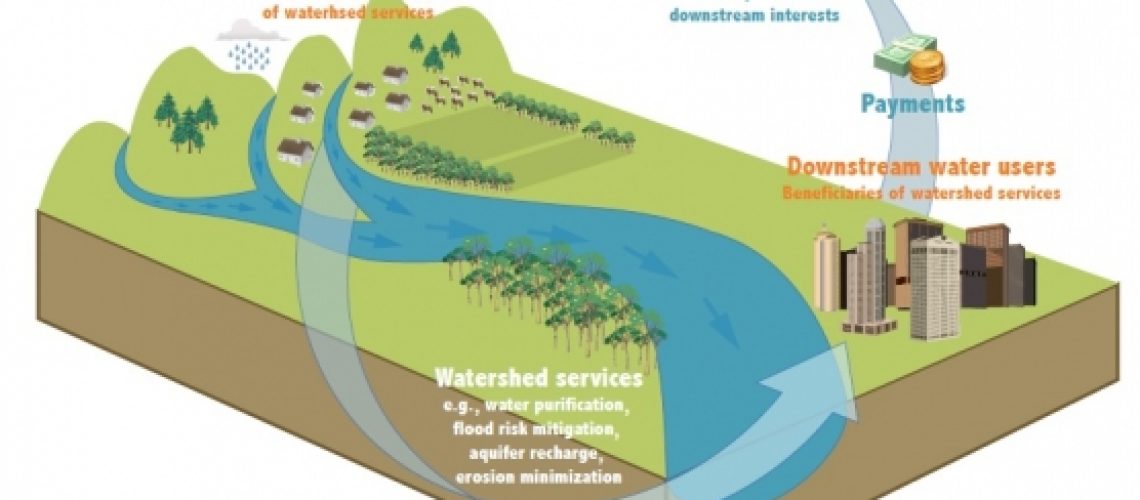Ecosystem Marketplace‘s recent report “Charting New Waters: State of Watershed Payments 2012” shows that the use of these innovative market-based strategies for watershed protection and restoration have doubled globally since 2008.
Circle of Blue reports that there are “205 active payment programs operating in 29 countries in 2011, up from 103 programs three years earlier. (An additional 73 programs are being developed but are not yet running.) More than $US 8 billion was spent on watershed services in 2011, an increase of $US 2 billion over 2008.”
These schemes, known as payments for ecosystem services, are based on the economic benefits that the environment provides. These benefits are typically overlooked in the traditional marketplace; however, the costs of environmental remediation aren’t, resulting in a skewed perception that the environment is solely a cost, rather than a benefit. The traditional marketplace does not provide incentives for private landowners to manage their lands in any other way than for the greatest economic gain, even at the public cost of ecosystem degradation, flooding, pollution, or sedimentation downstream.
In one example of a payment for watershed services scheme, the traditional approach we described is turned on its head with downstream beneficiaries ‘paying’ the upstream landowner for a land management regime that continues to provide benefits downstream. It is a ‘win-win’: the upstream landowner benefits, rather than loses out on potential income from a land use that has negative downstream impacts and the downstream beneficiary pays to protect or conserve the resource rather than paying to cleanup the results.
These programs are catching on because they provide an equitable way to clean up water bodies without adding regulations. With two water bodies impaired by non-point source pollution and 1,500 private property owners in the Granite Creek Watershed, one wonders if such a payment scheme could be devised to improve our watershed?

